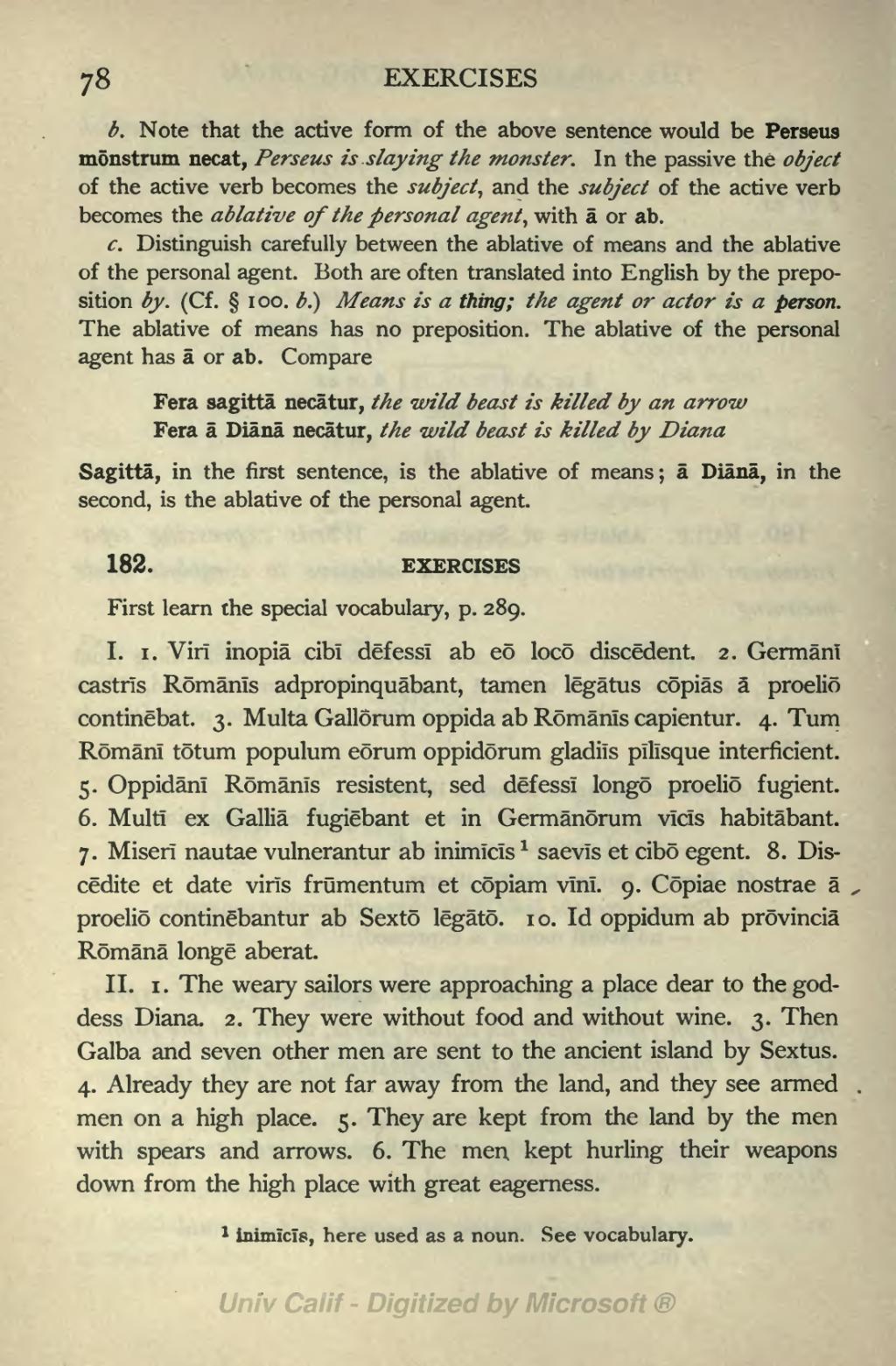78 EXERCISES
- b. Note that the active form of the above sentence would be Perseus mōnstrum necat, Perseus is slaying the monster. In the passive the object of the active verb becomes the subject and the subject of the active verb becomes the ablative of the personal agent, with ā or ab.
- c. Distinguish carefully between the ablative of means and the ablative of the personal agent. Both are often translated into English by the preposition by. (Cf. § 100. b.) Means is a thing; the agent or actor is a person. The ablative of means has no preposition. The ablative of the personal agent has ā or ab. Compare
- Fera sagittā necatur, the wild beast is killed by an arrow
- Fera ā Diānā necatur, the wild beast is killed by Diana
Sagittā, in the first sentence, is the ablative of means; ā Diānā, in the second, is the ablative of the personal agent.
182.
EXERCISES
First learn the special vocabulary, p. 289.
I.
- Virī inopiā cibī dēfessī ab eō locō discēdent.
- Germānī castrīs Rōmānīs adpropinquābant, tamen lēgātus cōpiās ā proeliō continēbat.
- Multa Gallōrum oppida ab Rōmānīs capientur.
- Tum Rōmānī tōtum populum eōrum oppidōrum gladiīs pīlīsque interficient.
- Oppidānī Rōmāmīs resistant, sed dēfessī longō proeliō fugient.
- Multī ex Galliā fugiēbant et in Germānōrum vīcīs habitābant.
- Miserī nautae vulnerantur ab inim!c!s[1] saevīs et cibō egent.
- Discēdite et date virīs frūmentum et cōpiam vīnī.
- Cōpiae nostrae ā proeliō continēbantur ab Sextō lēgātō.
- Id oppidum ab prōvinciā Rōmānā longē aberat.
II.
- The weary sailors were approaching a place dear to the goddess Diana.
- They were without food and without wine.
- Then Galba and seven other men are sent to the ancient island by Sextus.
- Already they are not far away from the land, and they see armed men on a high place.
- They are kept from the land by the men with spears and arrows.
- The men kept hurling their weapons down from the high place with great eagerness.
- ↑ inimīcīs, here used as a noun. See vocabulary.
